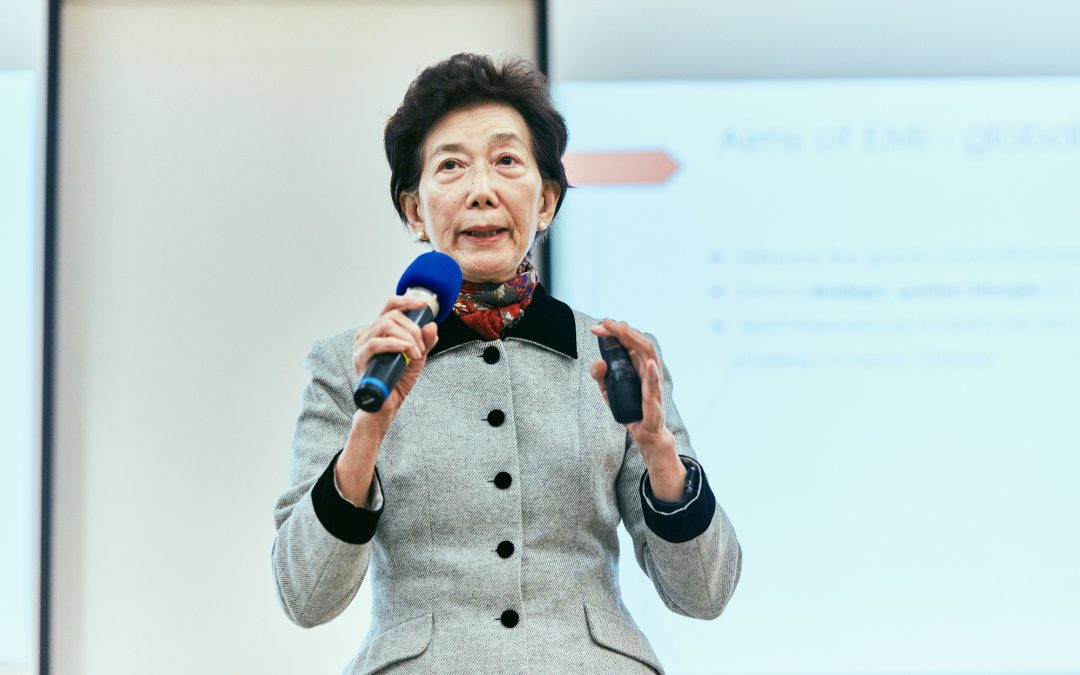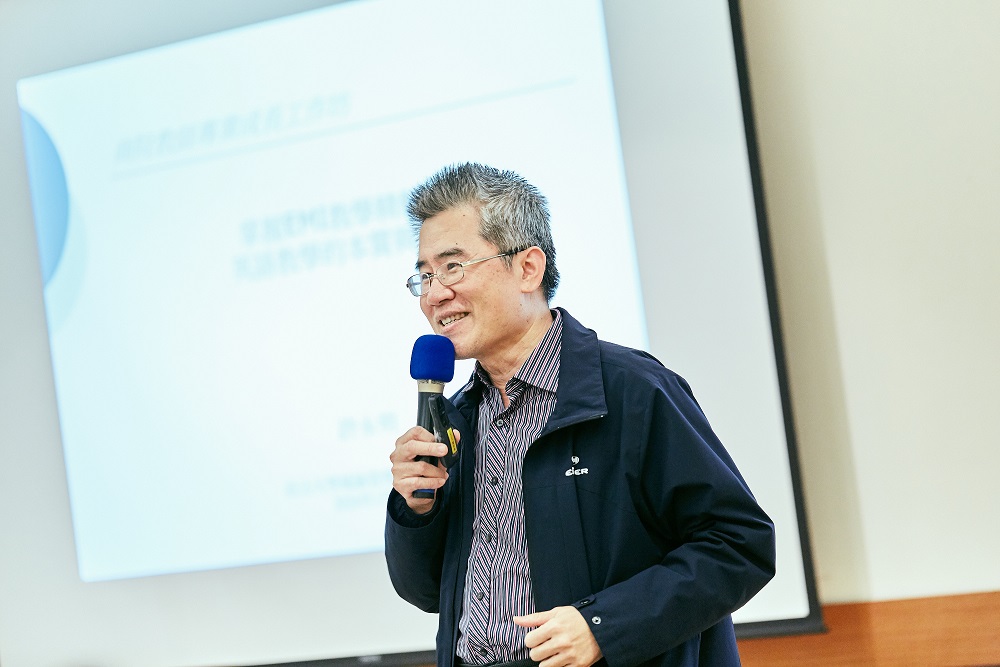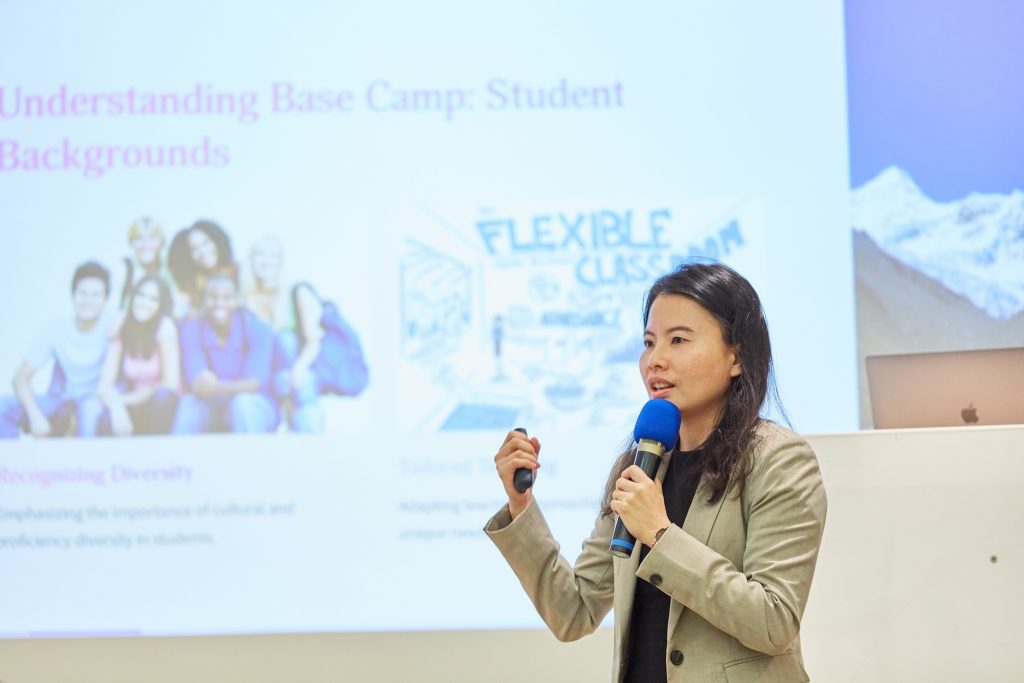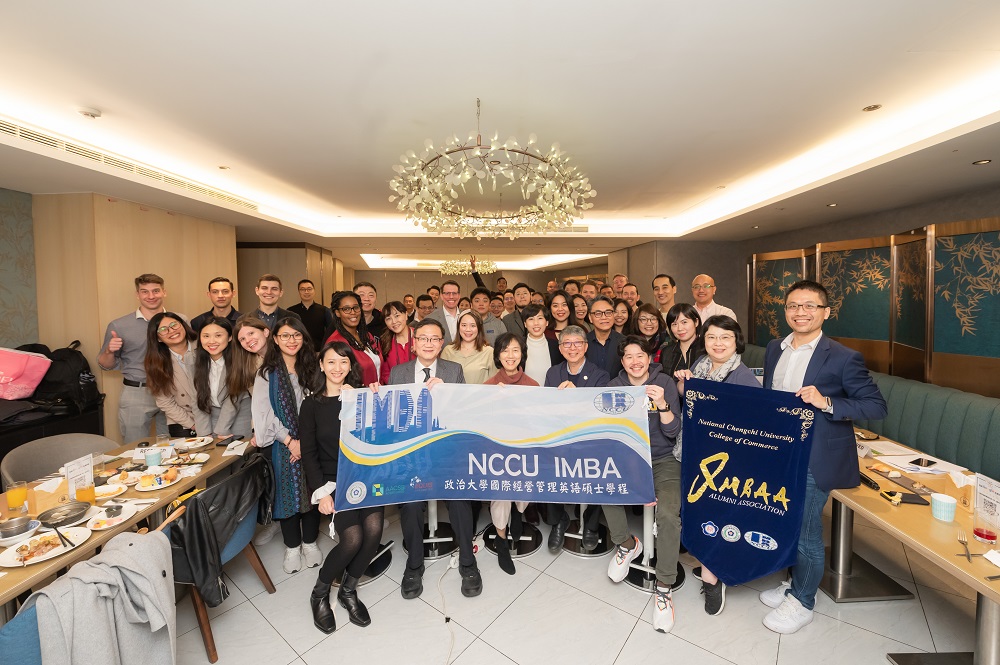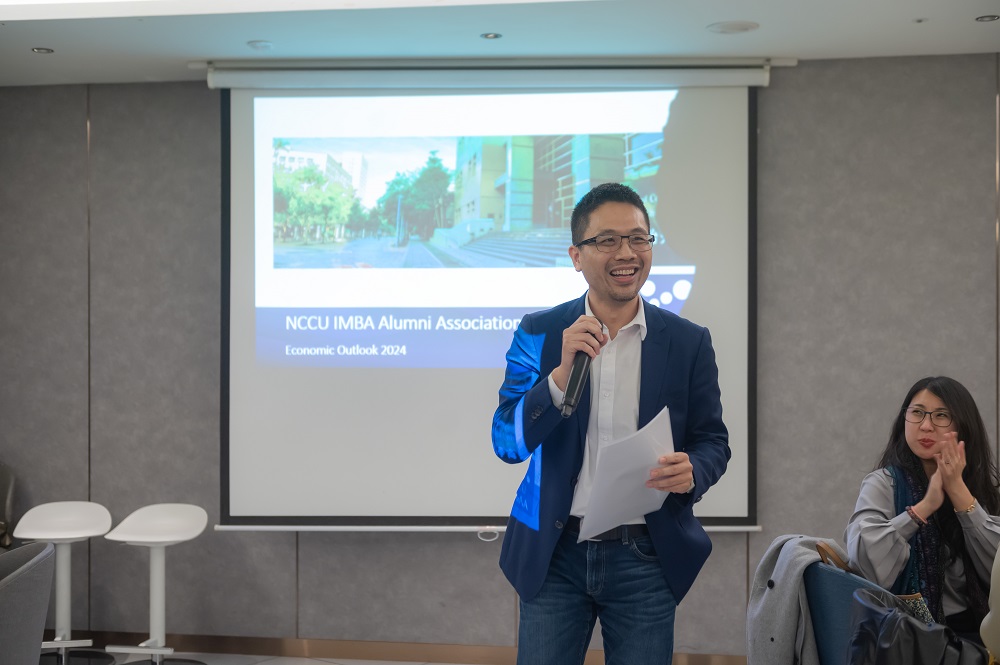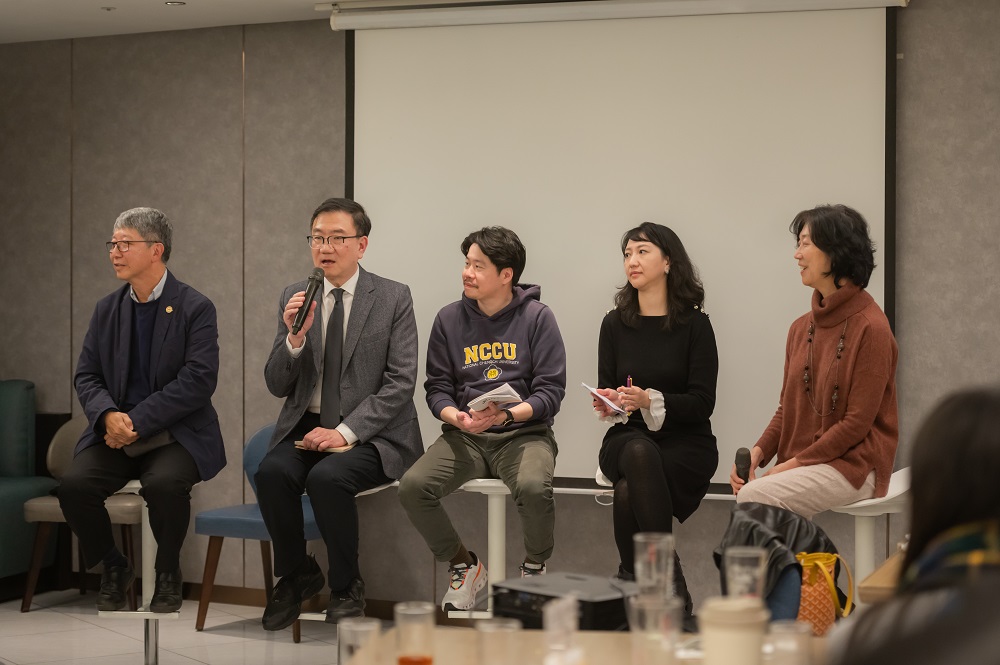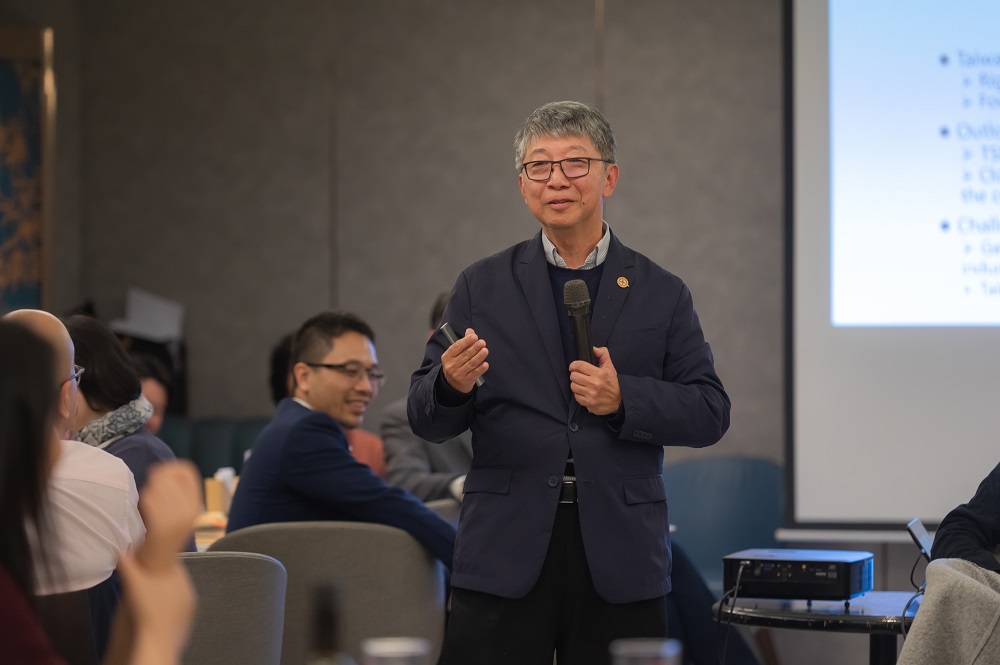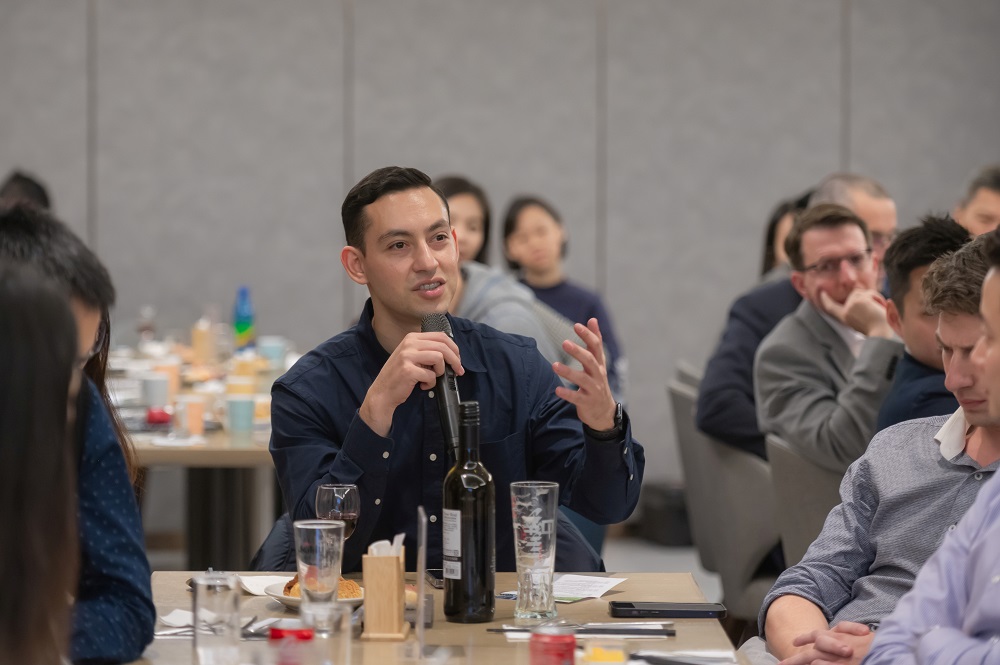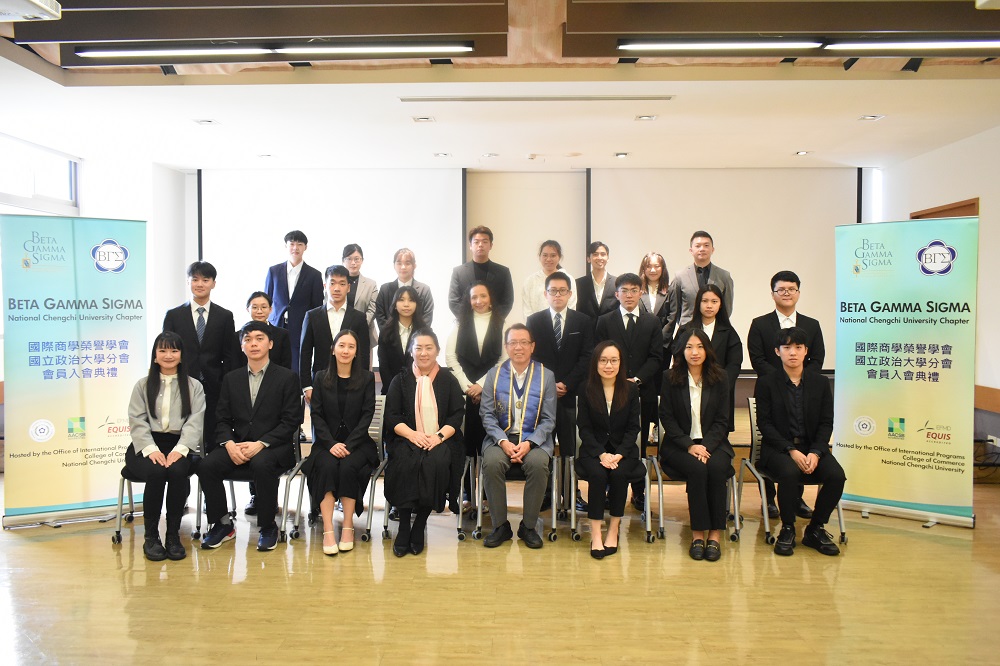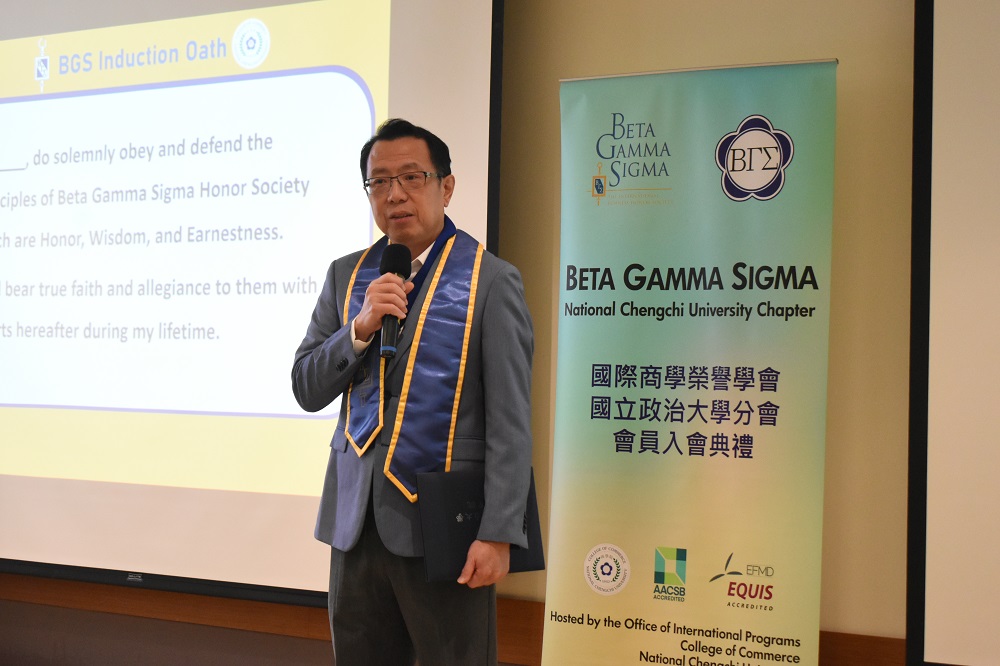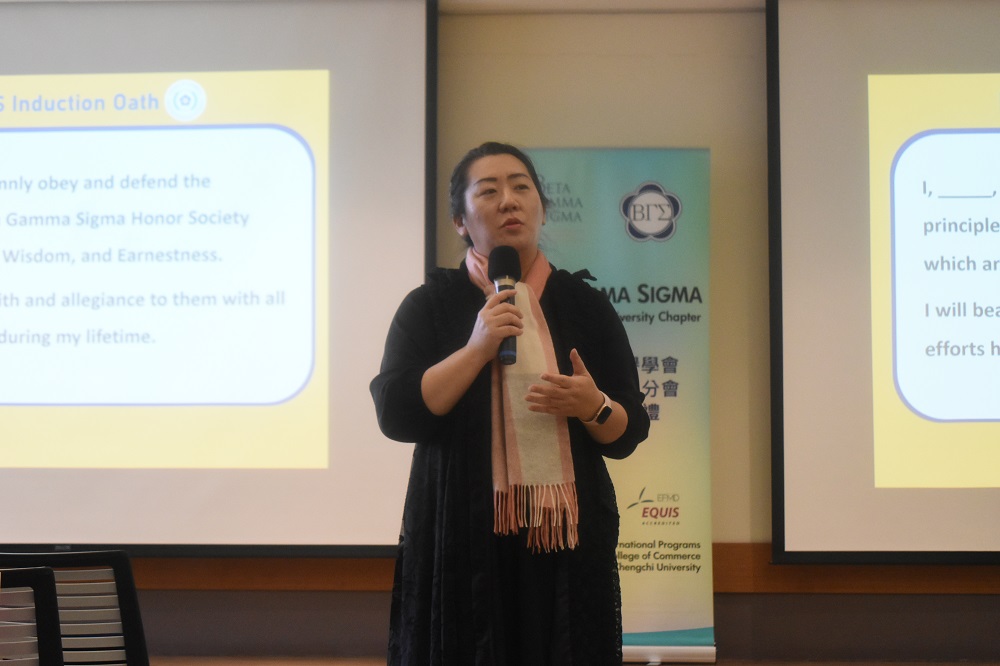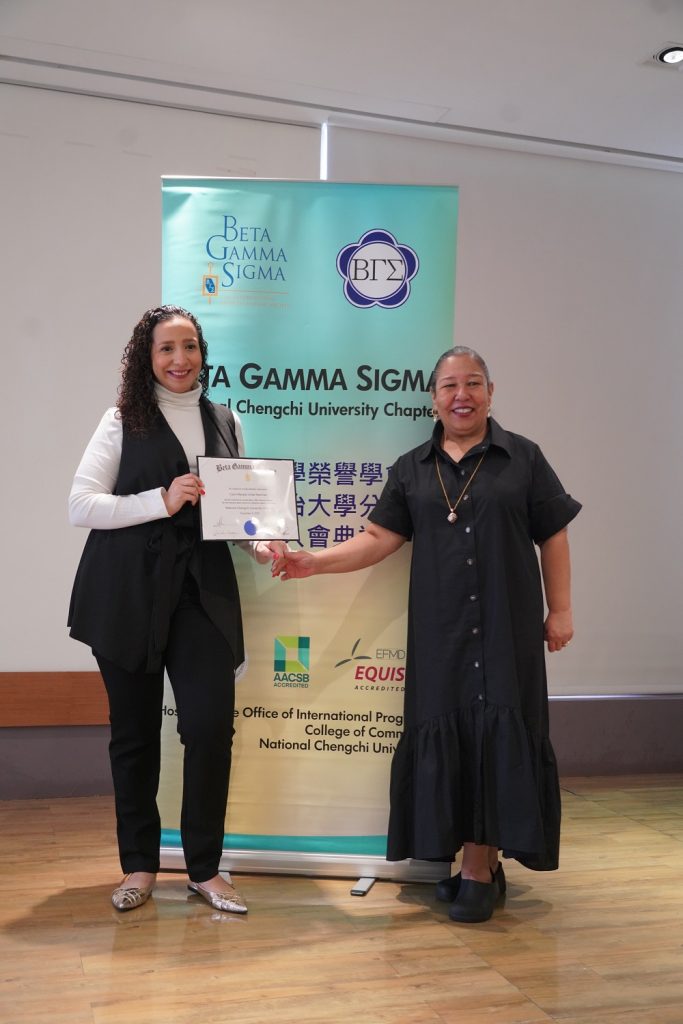Illume Taipei recently played host to a gathering of IMBA Alumni at the NCCU IMBA Alumni Association's Economic Outlook 2024 event. The illustrious venue set the stage for an evening of camaraderie, knowledge-sharing, and forward-thinking discussions. The event, which was well organized, unfolded seamlessly. The evening began with registration, then dinner, and networking with a crescendo that was the series of presentations from distinguished speakers. Alumni from various corners of the globe converged, setting the atmosphere abuzz with delightful conversations, smiles, and an overall energy of optimism.
The formal segment commenced punctually at 7:30 pm, with IMBAA President, Mr. Yen-lan Lin, extending a warm welcome. In his opening remarks, Mr. Lin addressed the challenges posed by the global pandemic over the past few years, acknowledging the subdued interactions within the alumni community during this period. However, he exuded confidence about a return to normalcy, proclaiming a year brimming with events and activities. The President introduced the newly appointed alumni board members, emphasizing the association's commitment to fostering connections between present students and alumni. A call to action resonated through the hall as Mr. Lin urged alumni to contribute to the association, not just with their presence but through financial support as well.
An exciting announcement followed as Mr. Lin revealed that information for 30 founding members had already been collected, paving the way for formal establishment. The collected data would be submitted to establish IMBAA officially, ensuring that future donations could be tax-deductible. The president outlined plans for quarterly activities, hinting at the next event scheduled for May.
The academic segment commenced with Professor Shari Shang of the Department of Management Information Systems introducing the first speaker, Professor Tse-Kang Leng. Professor Leng, versed in the area of Political Science, delved into the Global Economics and Political Outlook, with a focus on US-China-Taiwan relations.
Addressing an attentive audience, Professor Leng outlined key global challenges. The pandemic and the Ukraine-Russia War featured prominently, underscoring the intricate interplay between health crises and geopolitical conflicts. He highlighted the enduring significance of regime type and value systems and offered insights into a model of authoritarian capitalism. Globalization, often viewed through a lens of interconnectedness, was analyzed with caution, introducing the concept of weaponized interdependence.
As the topic shifted to China, Professor Leng explored risks and opportunities within the nation. The potential shrinkage of China's middle class, the penetration of party cells into the private sector, and the dual usage of technologies were meticulously dissected. The discussion delved into the challenges posed by local debts and the real estate market, the dynamics of talent flows, and the intricacies of central-local relationships.
The second speaker of the evening was Professor. Konrad Kwang-Leei Young, Founding Partner, Lead AgileX, Accelerator & Semiconductor Manufacturing International (SMIC) Independent Board Member, he presented the Global Semiconductor Industry Outlook and Trends. His narrative began by tracing the evolution of Taiwan's semiconductor industry, emphasizing its pivotal role in the global landscape. Dr. Young provided insights into the challenges faced by the industry, including geopolitical pressures and the complexities of global operations.
Delving into the specifics, Dr. Young highlighted Taiwan Semiconductor Manufacturing Company's (TSMC) continued dominance in the foundry business. He emphasized the increasing prominence of cloud and edge computation, signaling a transformative era in connectivity applications. Challenges such as geopolitical pressures and talent-related conflicts were dissected, offering a holistic understanding of the industry's trajectory.
Mr. George Kao, AP Senior Manager Coach at Siemens Digital Industry Software was the third speaker of the evening, captivating the audience with an exploration of the Global Software Industry Outlook. Delving into the world's top seven IT companies, he highlighted the pivotal role that software plays in driving their success. A notable highlight was his emphasis on the industry's robust projected growth rate of 5.2%, an indicator of its transformative potential.
Drawing inspiration from Jensen Huang's assertion that "Software is eating the world," Kao provided insights into the pervasive influence of software across diverse sectors. He skillfully navigated through the intricate landscape of artificial intelligence (AI), shedding light on China's fervent embrace of AI technologies. In doing so, Kao not only elucidated on the current dynamics but also forecasted a future where the symbiotic relationship between AI and software would spearhead a paradigm shift in various industries.
Within the AI realm, Kao delved into the specific realm of Chat GPT, underscoring its pivotal role in the evolving landscape. His discourse intricately unfolded the responsive capabilities of Chat GPT in the context of AI, highlighting the escalating demand for AI-powered solutions encompassing machine learning, natural language processing, and computer vision.
George Kao's presentation not only served as a comprehensive snapshot of the current state of the software industry but also provided a glimpse into the exciting trajectory it is set to follow. His detailed analysis, coupled with strategic foresight, added depth to the understanding of how the evolving landscape of AI and software promises to revolutionize our digital future.
Closing the series of expert presentations was Ms. Judy Huang, Regional Communications Head for Merck Electronics. Her speech on the Global Material Science Industry Outlook and Trends provided a deep dive into the history and contributions of Merck, a German company established in 1668.
Tracing Merck's evolution from a local pharmaceutical shop to a multinational giant, Ms. Huang highlighted the company's 355 years of history. Focusing on the material science industry, she detailed Merck's expertise in providing high-quality chemicals essential in the manufacturing of IC Chips. Notably, Merck's pivotal role in the discovery of liquid crystals, a technological breakthrough that laid the foundation for modern electronic devices, was recounted.
She navigated through the intricate processes involved in chip manufacturing, particularly the trend toward 3D architecture and stacking, underscoring Merck's precise contributions. In addition, Ms. Judy Huang shed light on Taiwan's significant role in the global semiconductor landscape, underscoring that Taiwan remains the largest semiconductor materials market worldwide. This insightful observation further emphasized the island's pivotal position in the semiconductor supply chain, solidifying its influence on the international stage.
In her closing remarks, Ms. Huang synthesized key takeaways. She stressed that technology trends like AI, machine learning, and autonomous driving would continue to propel industry growth. Semiconductor materials, she emphasized, play a pivotal role in enabling next-generation chip technology. The application of AI and machine learning in accelerating research and development, enhancing quality, and addressing sustainability concerns was highlighted. Importantly, Ms. Huang called for industry collaboration to tackle global climate change, positioning materials as catalysts for innovation.
As each speaker concluded their presentation, the audience had the opportunity to pose three questions to each, setting the stage for a robust and interactive panel discussion. The amalgamation of diverse perspectives, ranging from global politics and economics to semiconductor and software industries, provided a comprehensive understanding of the economic landscape.
The event concluded on a high note as a gift bag, a token of appreciation, was presented to each attendee. The gesture was made possible through the generosity of alumni contributors, including Caroline Wang, Ray Wang, Jim Wang, and Stacey Yang.
In closing, the IMBA Alumni Association expressed gratitude to all attendees, the organizing committee, the IMBA office, the speakers, and the alumni who contributed the gift bags. This gathering marked a milestone in fostering connections, illuminating the economic path ahead for NCCU IMBA alumni, and exemplifying the power of knowledge-sharing within a global alumni community. As the association eagerly looks forward to its next event in May, the resonance of insights and camaraderie from the Economic Outlook 2024 event will undoubtedly linger in the minds of attendees, serving as a beacon for future endeavors.
